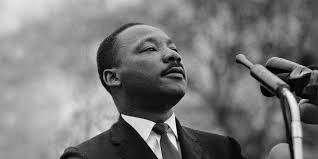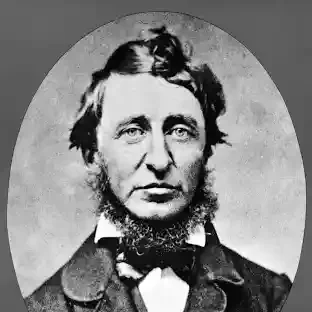“Disobedience is the true foundation of liberty. The obedient must be slaves”
~ Henry David Thoreau
-
Thoreau was a writer during the transcendentalist era and was a fairly ideal example of what transcendentalists were - he lived and independent, self-reliant life that was much intertwined with nature. His writing reflected this style of living as well. In his writing, he promoted ideas of self-reliance and independent thinking (holding steady to self beliefs and personal intuition). The first major supporter of civil disobedience, Thoreau provided the first clear definition of the movement’s values. In “Civil Disobedience”, Thoreau describes two main ideas of civil disobedience:
1) A man must not act on the legislature of his authority but on his own principles, and 2) the state “can have no pure right over… person and property but what [is conceded]” (“Civil Disobedience”).
With his words, Thoreau was a leader of men. His voice and insight about standing up for what is right against authority and what civil disobedience should be provided lessons that inspired many future activists, such as Gandhi and King.
“Men will lie on their backs, talking about the fall of man, and never make an effort to get up.”
-
In his early years, Martin Luther King Jr. had a keen sense of righteousness. He questioned racial standards and differences and stood up for what’s right from a very young age. This was further fueled by his family’s strong Christian base and his father’s moral standards as a civil rights activist. Due to his standards, moral principles, and terrific public speaking abilities, King excelled as an activist, even while he was still a teenager. The recognition of his leadership grew with his age; he officially started his journey as a leader in the civil rights movement in 1955, when he became the spokesman for the Montgomery Bus Boycott, and he only gained influence from there. Though they weren’t the missions’ end, very significant milestones included the passing of the Civil Rights Act and the Voting Rights Act.
Martin Luther King Jr. was, without a doubt, one of the most revolutionary leaders the nation has seen. His principles of equality, and what an effective movement should look like, were exactly what was needed to create significant change in his time. The movement he led thrived on its passion and discipline. Everybody he led knew the goal and understood the behaviors that would help them achieve the goal -- the same peaceful protesting advocated by Gandhi and many leaders before. He did more than provide structure, though, because perhaps even more importantly, King fueled the nation’s activists with his own unwavering determination, showing what it takes to create substantial change.
-
Born in India in the year 1869, Mahatma Gandhi’s struggles at a young age, along with his formal law education, helped shape his views of civil rights. In the early 20th century, he channeled his beliefs into leading a nationwide fight for India’s indepence. Strengthened by his use of nonviolent protest and the power of a nation, Gandhi, after many years of hard work, helped to win his nation, along with Pakistan, freedom from the British.
Gandhi saw protesting not as riotous, but as the deliberate organization of a large group of people done in a civil manner. By using peaceful protesting, Gandhi proved that violence was neither necessary nor preferable in the struggle of creating significant change. Many future leaders have taken inspiration from the teachings of Gandhi and his strategies to protest effectively as the movement he led remains one of the greatest in history.


